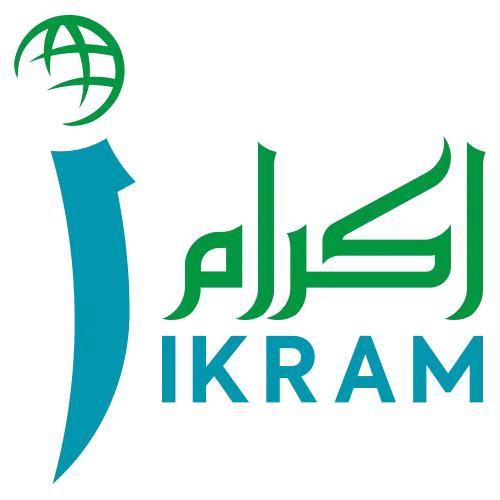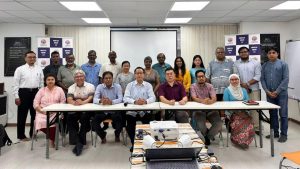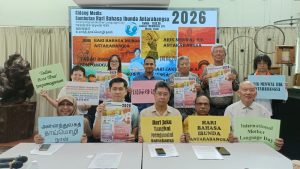He becomes consigned to the fact that his fate has been sealed, and tends to wallow in his own pain and suffering. The ability to verbalise such pain and suffering is what differentiates him from other creatures.
In extension, he is able to empathise with others, while simultaneously making sense of that empathy. It is often through the pain of others that he is able to reflect his own emotional state, vice versa.
He wants to help, he tries to help, but when his intention is not met with the desired consequence, he becomes increasingly agitated and begins to question Allah SWT (whether he believes or disbelieves is not the matter). At the root of this problem is a mistaken understanding of knowledge, and how it is applied in his life.
The jurist and muhaddith, Sufyaan ath-Thawri described fallen and divinely realised states of knowledge as follows: “Knowledge is as three spans of hand. The one who reaches the first span feels proud. The one who grows to the second span is amazed. The one who attains the third span realises that he does not have enough knowledge.”
As such, it would benefit us tremendously if we are willing to admit that not everything in the world can be known. Once we rid ourselves of the malady of pride, we are able to appreciate the things around us clearly, without a constant need to intellectualise it.
Sure, there are instances when human beings have acquired and dispensed knowledge to help the affairs of many (i.e., science and technology, medicine, etc.), but even then, this knowledge is finite and temporal. Many of our problems today can be traced to those in positions of power who are confined to their intellect, and are bereft of compassion towards others.
This affliction has an impact on many. For example, politicians who implement certain policies which might have been a mistake, but are unwilling to admit their error or miscalculation. Instead of admitting to a flaw, the tendency is to double down on ignorance, with the failed policy renamed and reapplied. Yet, the problems are not solved and still remain the same, if not made worse.
In this world, all creatures are able to benefit from the divine name Ar-Rahman (the Most Merciful). The infinite mercy of Allah SWT does not discriminate between the rich or the poor, the seeing or the blind, the hearing or the deaf, the healthy or the sick. His infinite mercy is in the hikmah attained from every unique struggle that each person has faced, is facing, and will face.
As His khalifah (vicegerents) in this world, we are able to be merciful as well; it is by means of our individual struggles that we can realise mercy at a societal level. Even though the scope of our mercy is limited, it does not mean that its practice is futile.
We cannot deny the fact that most times, we do not know why certain things happen, or why we have been dealt bad cards in our respective lives. Hikmah is the lesson in each struggle, a lesson that takes tremendous patience and willpower.
The realisation to why certain things happen often comes at a time when we least expect it. Why is this so? This is because Allah SWT works in miraculous ways, and His time is different from ours.
The attainment of ‘ilm (knowledge) usually relies on books and conversations, but wisdom or ma’rifah (divine knowledge) is in its internalisation and perfection through action. For this reason, those who do not elevate their knowledge to a state of ma’rifah are in danger of intellectual sterility.
Sometimes, the abandonment of knowledge is necessary, as true faith often depends on a suspension of the aql’ (mind) in its willing embrace of the divine. We would do well to remember the words of the great Sufi saint, Rumi:
Those who have pure hearts are freed from colours and smells.
They easily see a beauty in every breath.
They have left behind the decoration in the shell of knowledge.
Instead, they carry the flag of certainty of a witness.
However, it is not sufficient for such words to be trapped in the mind alone. By Allah SWT’s grace, we have the power to manifest these words into reality, and to be in tune with our surroundings in a way that is sincere and selfless.
To reach such a state is not easy, and requires great dedication and commitment in part of the seeker. The process of acquiring knowledge necessitates a relationship of trust between student and teacher, vice versa. There is no greater trust than that which has been placed by Allah SWT on his khalifah.
If we really put thought into it, modern man’s ailments are not far removed from that of his predecessors. This ailment revolves around the ego (a form of nafs) and the inability to control and take charge of it. In its modern guise, the problem of the ego is heightened by unnecessary competition through social media.
It is a false reality that feeds the ego, and creates people who are self-centred and devoid of a real identity. Man’s knowledge of himself takes a different turn as he is no longer merely a creation, but is able to fashion himself as an idol to others.
To reiterate, human beings have limited knowledge; we would do well to realise and come to terms with this irrefutable reality. Allah SWT on the other hand, is omniscient. His omniscience is encapsulated in various verses in the Qur’an, including the 27th verse of Surah Luqman:
وَ لَوْ أَنَّ ما فِی الْأَرْضِ مِنْ شَجَرَةٍ أَقْلامٌ وَ الْبَحْرُ یَمُدُّهُ مِنْ بَعْدِهِ سَبْعَةُ أَبْحُرٍ ما نَفِدَتْ کَلِماتُ اللَّهِ إِنَّ اللَّهَ عَزیزٌ حَکیم
“And if all the trees on earth were pens and the ocean (were ink), with seven oceans behind it to add to its (supply), yet would not the words of Allah be exhausted (in the writing): for Allah is Exalted in Power, full of Wisdom.” (31:27)
May Allah SWT give us strength in dealing with the challenges of the mind and heart, and that we remain on the seerat al-mustaqim (straight path).
Penulis, Arief Subhan merupakan seorang Pembantu Penyelidik bagi ‘Political Futures Experts Group (PFEG)’ di Institut Antarabangsa Pemikiran dan Tamadun Islam (ISTAC).







